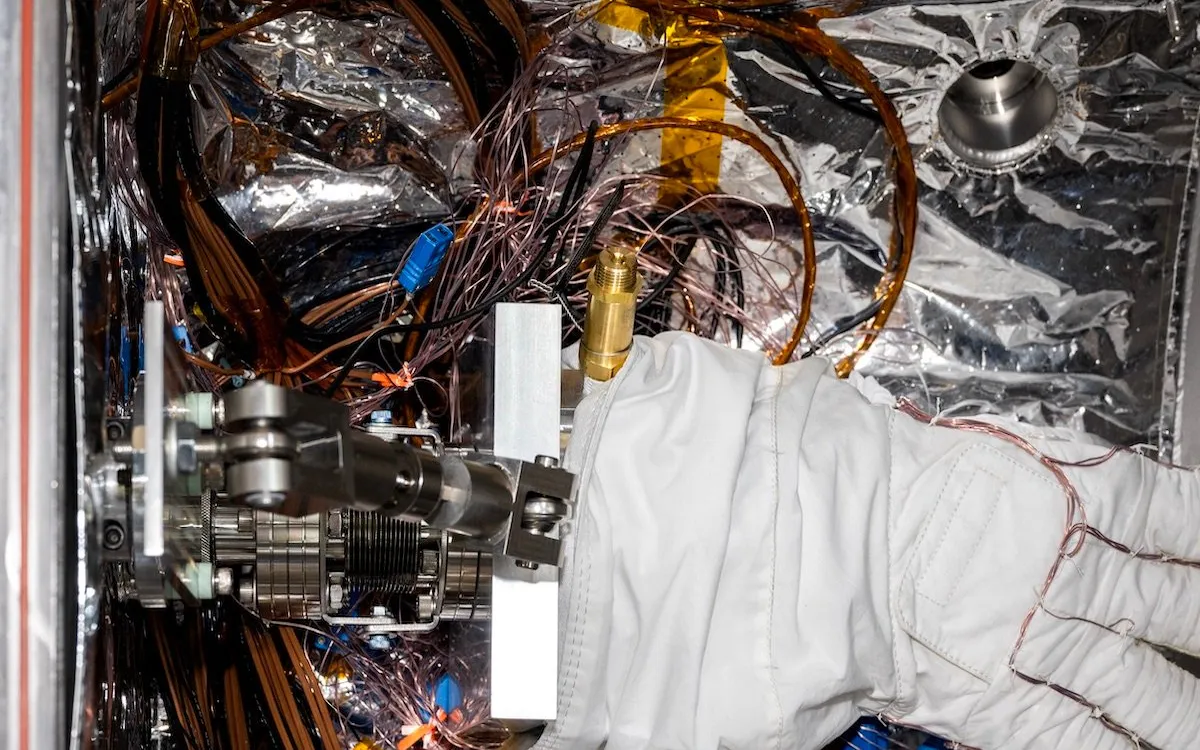
NASA's upcoming lunar missions are poised to be significantly colder than the historic Apollo program. With a focus on ensuring astronauts' safety and comfort, the agency is diligently working on innovative solutions to keep its crew warm while exploring the permanently shadowed regions of the lunar south pole. This critical research is taking place at the Cryogenic Ice Testing, Acquisition Development, and Excavation Laboratory, affectionately known as CITADEL, where NASA engineers are rigorously testing the next-generation spacesuits destined for lunar exploration.
The lunar south pole presents an array of challenges due to its extreme cold and unique environmental conditions. "We want to understand what the risk is to astronauts going into permanently shadowed regions, and gloves and boots are key because they make prolonged contact with cold surfaces and tools," explained Zach Fester, an engineer with the Advanced Suit Team at NASA Johnson. This emphasis on the thermal performance of spacesuits is crucial for the safety of astronauts who will be navigating these harsh terrains.
CITADEL, measuring 4 feet (1.2 meters) tall and 5 feet (1.5 meters) wide, is located at NASA's Jet Propulsion Laboratory. Unlike traditional cryogenic facilities that typically use liquid nitrogen, CITADEL employs compressed helium to achieve frigid temperatures as low as -370°F (-223°C). This state-of-the-art chamber takes several days to cool down and features four load locks, which allow for the insertion of test materials while maintaining a chilled vacuum state. Additionally, CITADEL is equipped with a robotic arm and both visible and infrared cameras to meticulously document the testing process.
To create a realistic testing environment for lunar missions, the CITADEL team incorporates abrasion testing and adds lunar regolith-like materials to the chamber. Aluminum blocks are also included to simulate tools that astronauts might use. Historically, NASA conducted thermal testing using actual astronauts, who would insert their gloved hands into a chilled glove box and hold frigid objects until their skin temperatures dropped. Today, a custom-built manikin hand and foot replicate these conditions, featuring a sophisticated system of fluid loops to simulate warm blood flow, paired with numerous temperature sensors to gather comprehensive data from inside the gloves and boots.
The upcoming Artemis 3 mission, scheduled for launch in 2027, aims to land astronauts on the Moon for the first time since the Apollo missions. While Apollo astronauts explored the equatorial regions of the Moon, the Artemis crews will venture to the lunar south pole, an area rich in potential resources like water ice. However, this region is known for its extreme temperatures, with conditions reaching a bone-chilling -414°F (-248°C) in some areas.
As part of their preparations, astronauts will be outfitted with new, cutting-edge spacesuits designed for lunar exploration. In 2022, NASA engaged Axiom Space to develop the first moonwalking suits since Apollo. The resulting AxEMU, or Axiom Extravehicular Mobility Unit, builds on the legacy of Apollo spacesuits while integrating modern technology to enhance mobility and protection. Axiom Space has also collaborated with the fashion brand Prada to ensure the suits are both functional and aesthetically pleasing.
The ongoing testing at CITADEL is vital for establishing criteria for the AxEMU spacesuits. The gloves currently being evaluated represent the sixth iteration of a design first used in the 1980s. However, initial tests revealed that these gloves did not meet the thermal requirements necessary for the lunar south pole environment. While results from boot testing are still pending analysis, NASA’s Advanced Suit Team is focused on identifying the limits of the current hardware. Shane McFarland, the technology development lead at NASA Johnson, stated, "This test is looking to identify what the limits are: How long can that glove or boot be in that lunar environment?"
As NASA gears up for the Artemis 3 mission, the findings from CITADEL will play a crucial role in ensuring astronauts can effectively explore the Moon's south pole while staying warm and safe. With these preparations, NASA is laying the groundwork for humanity's long-awaited return to the lunar surface, pushing the boundaries of exploration and scientific discovery.